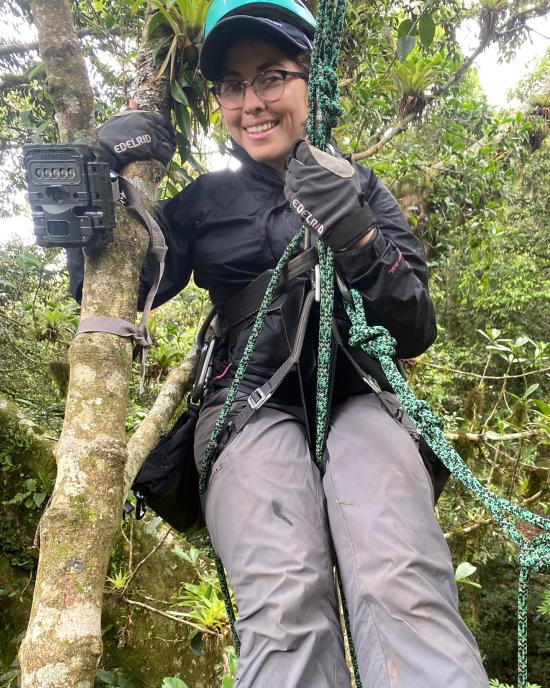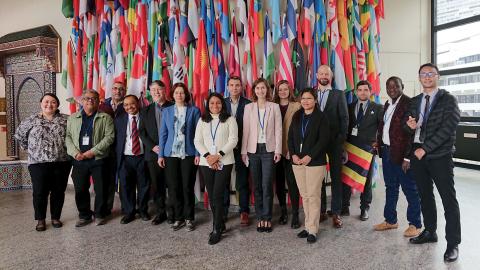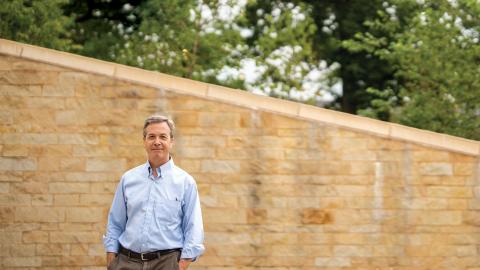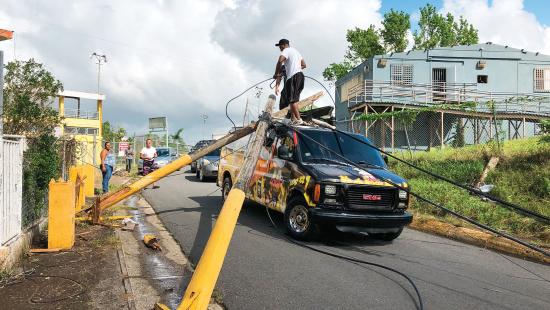
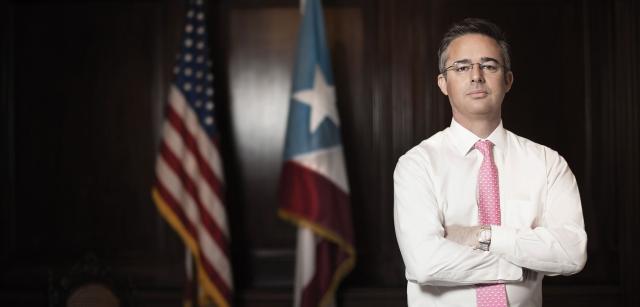
A Brighter, Cleaner Energy Future for Puerto Rico
For two months following Hurricane Maria, the lights in Agustín Carbó’s San Juan home did not turn on. The September 2017 storm, coupled with Hurricane Irma that passed close to the island less than two weeks before, downed power lines and damaged its grid, resulting in the longest blackout in U.S. history. Residents of Vieques and Culebra, small islands off the east coast of the mainland, were without power for more than a year. Last fall, Hurricane Fiona and Hurricane Nicole also wreaked havoc on Puerto Rico’s power grid.
“The issues happening in Puerto Rico require holistic solutions. It’s about environmental protection, the future of communities, and resiliency,” Carbó ’12 MEM says.
“Everyone has a voice. They need to be heard and integrated into the resolution. Everyone needs energy to survive, and we have to be responsible with this resource.”
As the inaugural director of the Puerto Rico Grid Modernization and Recovery Team, Carbó is now leading the Biden administration’s efforts with the government of Puerto Rico to rebuild its electrical grid so it is more resilient, more secure, and fully capable of supporting clean electricity. Among his top priorities for the team, which was established in October 2022, is bringing together the many organizations working to achieve this goal.”
Carbó, who earned a law degree at Vermont Law School before attending YSE, says he hadn’t planned to focus on the energy sector when he first pursued his master’s degree. But a course in democracy and sustainability sparked his interest in energy policy and climate law and led him to develop expertise in environmental engineering and environmental policy analysis. After graduating from YSE, Carbó took on leadership roles in green energy. He served as the first chair of the Puerto Rico Energy Commission; president of the ClimaTHINK Institute for Climate Law & Policy, a nonprofit promoting climate law and policy; and as director of energy transition for the Environmental Defense Fund before being named director of the new grid recovery team by the U.S. Department of Energy.

E. Donald Elliott, Florence Rogatz Visiting Professor of Law at Yale Law School, who teaches cross-listed courses at YSE in advanced environmental law, energy law and policy, and conservation legal theory, became a mentor to Carbó after he took his green energy class. Elliott says he was not surprised when Carbó was appointed to this leadership position because he is the type of leader who can make critical changes.
“I am proud that we at Yale have the opportunity to work with promising students such as Agustín who go out and change the world for the better,’’ he says. “Our students teach us at least as much as we teach them.”
Between his government experience and his education at YSE, Carbó says he feels equipped to handle the complex challenges facing Puerto Rico’s energy grid. One major issue is the island’s geography. Most electricity-generating assets are in the south near the coast — vulnerable to sea-level rise — while most of the energy demand is in the north. Transmission lines are forced to run through the mountains, making for difficult repairs.
“It’s a very old public utility,” says Carbó. “It has to undergo transformation.”
Despite the challenges, Carbó is hopeful that stakeholders can work together to fortify the grid to withstand storms and that the island can transition to renewable energy alternatives. The key, he says, is making sure community members’ concerns, ideas, and experiences reach policymakers.
“Everyone has a voice,” he says. “They need to be heard and integrated into the resolution. Everyone needs energy to survive, and we have to be responsible with this resource.”
